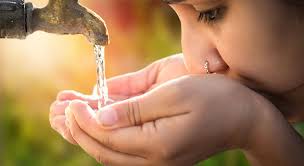Access to clean water is a basic human right, yet millions of people around the world are deprived of this necessity. In many communities, especially in developing nations, clean water is not just scarce—it’s a daily struggle to find. Diseases caused by contaminated water kill thousands every year, particularly among children. The good news is that there are solutions, and everyone can play a part in bringing clean water to communities in need.
Why Clean Water Matters
Clean water is essential for life. It sustains our health, fuels agriculture, and supports sanitation. However, according to the World Health Organization (WHO), more than 2 billion people lack access to safe drinking water. The effects of this crisis ripple through communities, affecting health, education, and economic growth.
Diseases like cholera, dysentery, and typhoid thrive in areas without clean water. For children, the impact is devastating—poor sanitation and unsafe drinking water are leading causes of death among kids under five. Families in water-scarce areas spend countless hours collecting water, often from unsafe sources, reducing time for education and income-generating activities.
Challenges in Providing Clean Water
While the need for clean water is clear, providing it poses significant challenges:
- Geographical Barriers: Remote communities are often far from water sources, making infrastructure development expensive and time-consuming.
- Financial Constraints: Many governments and organizations lack the funding to install and maintain water systems.
- Climate Change: Droughts and erratic rainfall patterns exacerbate water scarcity.
Despite these obstacles, organizations and governments are making strides toward solving this crisis.
Solutions to the Water Crisis
Innovative solutions are emerging to address the global water crisis.
- Community Wells: Building wells in underserved areas gives people direct access to clean water. Organizations like Charity: Water have pioneered this approach, providing sustainable access to safe drinking water in rural areas.
- Water Filtration Systems: Affordable, portable water filters help purify contaminated water, providing immediate relief to families in need.
- Rainwater Harvesting: Capturing and storing rainwater is an effective way to supplement local water supplies.
- Education and Awareness: Teaching communities about water sanitation and conservation helps prevent the spread of waterborne diseases.
How You Can Help
The clean water crisis is a global issue, but individuals can make a significant impact. Here are a few ways you can get involved:
- Donate: Your contribution can fund projects like well construction or the distribution of water filters. Erihil.net offers more details on how you can support initiatives aimed at improving access to clean water.
- Raise Awareness: Share information about the water crisis on social media to inspire others to act.
- Volunteer: Many organizations, like Water.org, welcome volunteers to help with community outreach and project implementation.
- Advocate: Push for policies that prioritize water access in underserved communities.
Success Stories: Hope for the Future
Efforts to bring clean water to communities have already yielded incredible results. For example, in Kenya, the implementation of solar-powered water pumps has transformed lives in arid regions. Families now have access to water without trekking miles daily, allowing children to attend school and parents to work.
Similarly, in India, rainwater harvesting projects have replenished local aquifers, providing water to thousands of households. These success stories prove that solutions exist—and they work.
The Role of Technology and Innovation
Technology is playing a vital role in solving the water crisis. From mobile apps that track water quality to solar desalination systems, innovation is driving change. These advancements are not only improving access but also ensuring sustainability.
A Call to Action
Access to clean water should not be a privilege—it is a necessity. The time to act is now. By supporting clean water initiatives, we can save lives, empower communities, and build a brighter future for everyone.
Visit Erihil.net to learn more about ongoing clean water projects and how you can contribute to this life-changing mission. Together, we can make a difference—one drop at a time.
For more information on global water issues and solutions, check out UN Water and WaterAid. Every effort counts in the fight for clean water.
